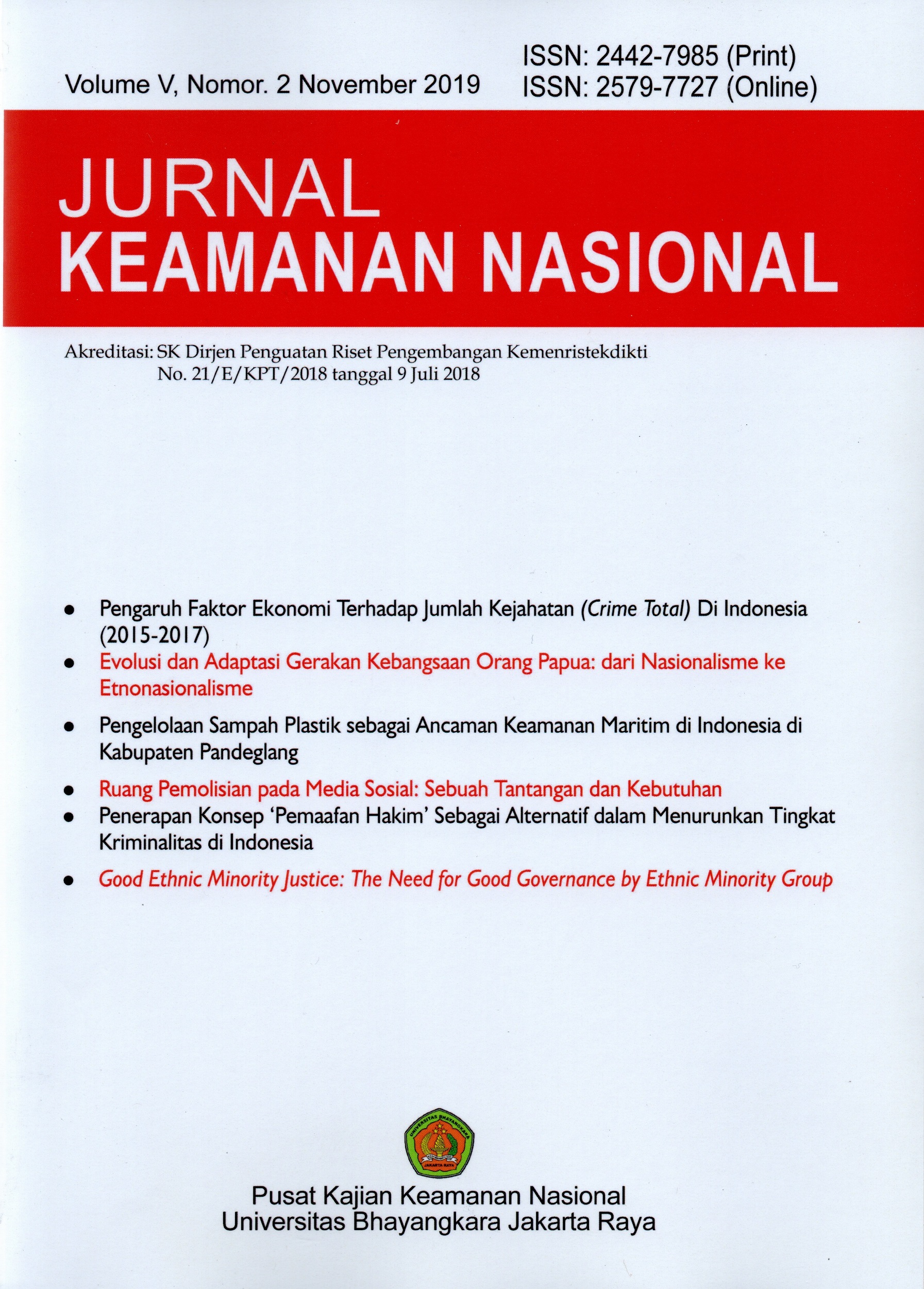Good Ethnic Minority Justice: The Need for Good Governance by Ethnic Minority Group
Keywords:
Ethnic Minority, good governance, transparency, participation, human rightsAbstract
Good ethnic minority justice is a notion that stipulates equal treatment for all people, including ethnic minorities, regardless of their ethnic, religious, or cultural background. This paper will discuss the vital demand for the implementation of good governance in providing justice to ethnic minorities. Good governance, at least, comprises of the principle of transparency, the principle of participation, and the principle of human rights. Furthermore, this paper will focus on theoretical and philosophical analyses of the need for good ethnic minority justice. Some examples are mentioned from the situation of legal protection of ethnic minorities in Indonesia and the Netherlands. Meanwhile, philosophical discourses emphasize good ethnic minority justice which is the opposite of the dominant theory of justice. The theory of justice mostly supports the position of the majority. Good ethnic minority justice highlights the legal protection of ethnic minorities.
Downloads

Downloads
Published
Issue
Section
License
Please read and understand the copyright terms for submissions to this journal.
Copyright Notice
The Jurnal Keamanan Nasional is under the Creative Commons Attribution 4.0 International (CC-BY 4.0) License, according to which:
1) Authors retain copyright and grant the journal the right to first publication, with the work simultaneously licensed under the Creative Commons Attribution (CC-BY 4.0) that allows the sharing of articles published with the acknowledgement of authorship and the initial publication in this journal.
2) The authors are authorized to make additional contracts separately for distribution of the version of the work published in this journal (for example, publication in an institutional repository or as a chapter of the book), as long as there is recognition of authorship and initial publication in this journal.
3) Authors are authorized and encouraged to publish and distribute their work online (for example, in institutional repositories or on their personal pages) at any time before or during the editorial process, as it increases the impact and reference of the published work.












